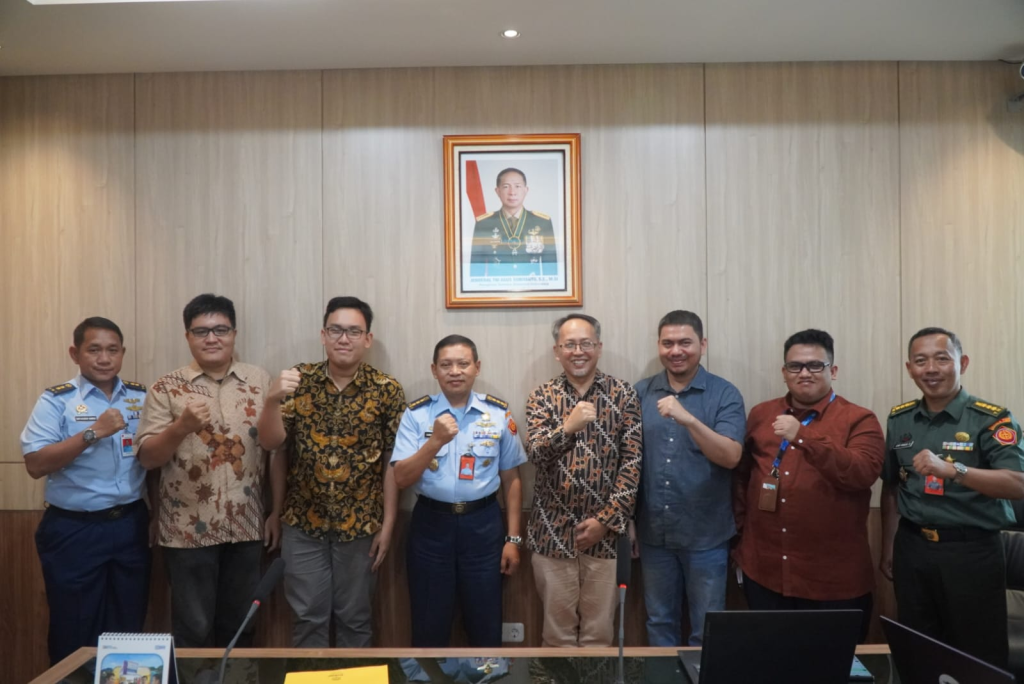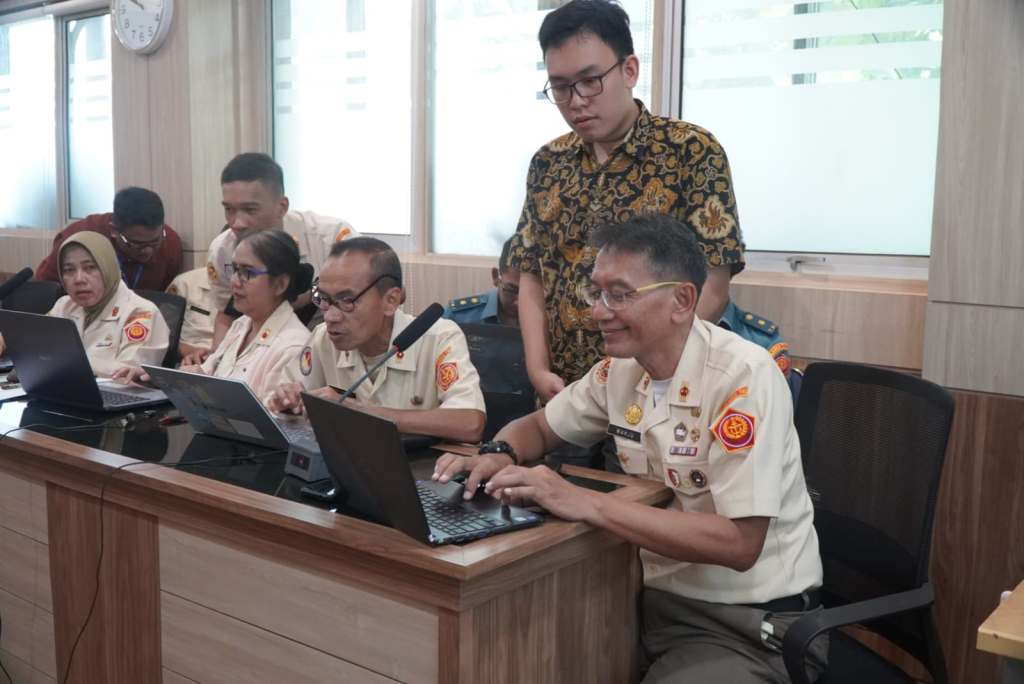
On 15 May 2024, Wikimedia Indonesia held a WikiLatih with the Armed Forces History Center (Pusat Sejarah Tentara Nasional Indonesia). The Armed Forces History Center is an institution which supervises all armed forces museums, libraries, monuments, and historical references and publications, while WikiLatih is a training session held for external institutions to help them familiarize with the procedures and inner workings of Wikipedia.
Upon entering the building, we were introduced to the Chief of Museums, Monuments, and Libraries of the Armed Forces History Center, Colonel Dwi Imam Subagyo, for an introductory meeting. After the meeting, we were seated at the center’s meeting room. The meeting was attended by representatives from the soldiers and the civil servant of the Armed Forces History Center and several members and administrators from Wikimedia Indonesia.
The WikiLatih began with an opening speech from the Deputy Chief of the Armed Forces History Center, Colonel Subari Santoso. In his speech, Colonel Subari highlighted disinformation that occurred in the current era and the role of online encyclopedias such as Wikipedia to counter the disinformation. Colonel Subari highlighted the need for the center to understand the inner workings of Wikipedia due to its strategic position in web searching. Subari’s opening speech was continued with a speech from the member of the board of supervisors of Wikimedia Indonesia, Ichsan Mochtar, which welcomed the invitation from the Armed Forces History Center to further understand the inner workings of Wikipedia and its sister projects.
The WikiLatih session began with a brief overview of the Wikimedia Foundation, Wikimedia Indonesia, Wikipedia, its sister projects, as well as the rules and guidelines of Wikipedia by Ichsan Mochtar. Afterwards, the session continued with an in-depth explanation of Wikipedia and a simulation on writing articles about historical monuments. The session was continued by a hour-long break session. After the break, the WikiLatih was continued with feedback on articles that has been edited.

The WikiLatih was closed with a brief presentation on do’s and don’ts on writing military biographical articles in Wikipedia by me. In the presentation, the author argued that writing biographies in the form of points does not align with the rules and guidelines of Wikipedia, as it strongly discouraged articles in CV format. To abide by the rules and guidelines, military biographies should be written in the form of narratives, with further description and elaboration on the person’s actions and accomplishments during their tenure.

My personal highlight of the entire WikiLatih session was the editing and the Q&A session. During the editing session, the armed forces member seemed to experience certain difficulties in making and logging in to their account for editing and writing their userpage. Despite the technology gap and misunderstandings, the members were eventually able to create account and edit articles.
The next challenge during the WikiLatih was regarding the content and references. Due the controversial nature of certain topics of Indonesian history, some officers and civil servants voiced their disagreements regarding some Indonesian history-related articles. They argued that the content of the article was “inaccurate and incorrect”. One of the examples is on the article about Indonesia’s occupation of East Timor, in which one of the officers strongly opposed the usage of “occupation” in describing the entire event. There were also dispute regarding the sources used in the article, which was labeled as a “disinformation”. The entire debate was mediated through a common understanding regarding the difference of standards between Wikipedia and the armed forces center.
Overall, the WikiLatih provided me and other trainers an experience in facing different perspective on disseminating information. There is a difference of goal between the Armed Forces History Center as a military-owned institution aimed to socializing and preserving armed forces history and Wikipedia as a non-profit organization aimed at liberating knowledge for the public. Despite this, the center is still viewed as a valuable resource center due to its efforts in preserving resource. Further cooperation with the Armed Forces History Center could be focused on other sister projects, such as Wikimedia Commons, in which the center could donate valuable historical military images, and Wikisource, in which magazines and books from the center could be digitalized properly.

Can you help us translate this article?
In order for this article to reach as many people as possible we would like your help. Can you translate this article to get the message out?
Start translation